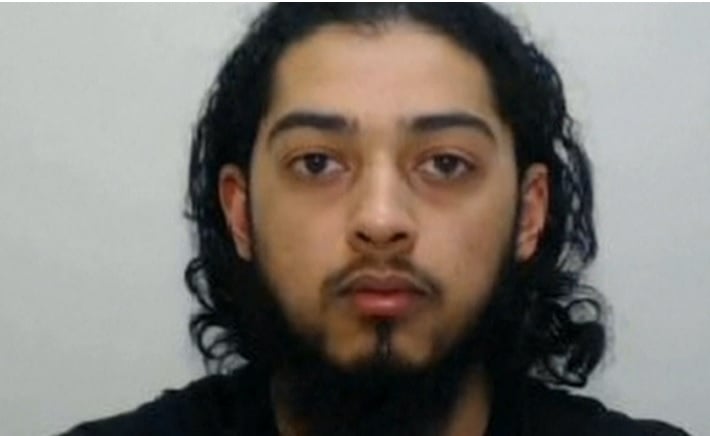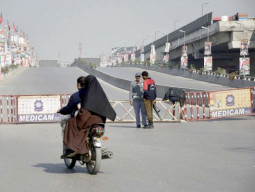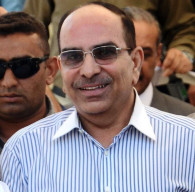
Mohammed Syeedy, 21, and accomplice Mohammed Abdul Kadir followed their victim Jalal Uddin as he walked home from evening prayers at his mosque in Rochdale, northern England, in February and bludgeoned him to death in a park.
Lahore police apprehend four Islamic State plotters
Police said Syeedy was believed to have acted as the getaway driver while Kadir, who is now thought to be in Syria, attacked the victim with a hammer.
Prosecutors said the men had planned the murder for months and stalked Uddin, 72, because he practiced something called Ruqya, a form of healing in which he used amulets called Taweez.
The attackers, who both followed the Salafist strand of Islam espoused by Islamic State - also known as Daesh - believed this to be punishable by death.
"The prosecution proved that Syeedy believed Jalal Uddin to be practicing black magic and, inspired by the teachings of Daesh, that the victim deserved to die for that belief," said Sue Hemming, head of the Crown Prosecution Service's Counter Terrorism Division.
US military says air strike killed Islamic State propaganda chief
Police said while Syeedy might not have delivered the fatal blows, he had played an integral part in the murder.
"Although Jalal was a Muslim who peacefully practiced his faith, he had a love and respect for all religions, cultures and creeds, and the fact that he was murdered by someone inspired by (Islamic State) shows the true nature and barbarity of this organization and those who serve it," Uddin's family said in a statement.




1736599343-0/fizza-(8)1736599343-0-165x106.webp)



1736605969-0/Copy-of-Untitled-(7)1736605969-0-270x192.webp)


1736508423-0/Express-Tribune---News-Desk-(9)1736508423-0-270x192.webp)


1736495887-0/sidra--(63)1736495887-0-270x192.webp)








COMMENTS (1)
Comments are moderated and generally will be posted if they are on-topic and not abusive.
For more information, please see our Comments FAQ